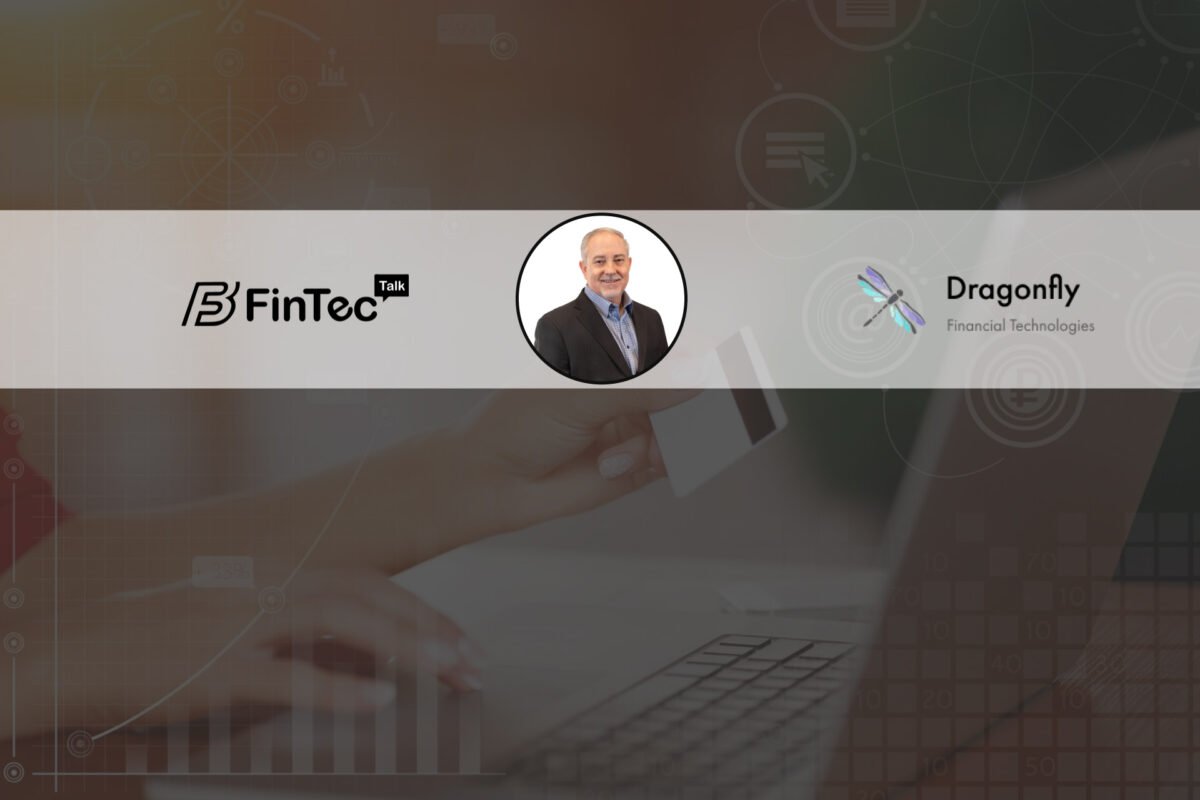1. Tell us about your role at Aerospike.
I’m the CEO of Aerospike, a leader in next-generation, hyperscale data solutions. As a serial entrepreneur and engineer at heart and a Navy veteran, I carry those perspectives with me in my role as CEO. I’m fascinated with analyzing business models, solidifying the areas that work, and tackling the challenges that slow growth so companies can maximize their full potential.
2. Can you tell us about your journey into this market?
I have more than 30 years of experience building high-growth technology companies and a passion for empowering developers to create next-generation applications in the cloud. I previously held CEO roles at Salesforce.com, Hyperion Solutions, Engine Yard, and Navis. Earlier in my career, I was an engineer at Electronic Data Systems and held sales management roles at Oracle as the relational database management company grew from $100 million to $1 billion. There’s been a massive shift in the database industry, as developers seek revolutionary technology with unlimited scale and blazing speeds that power mission-critical applications that can’t break. Since I joined Aerospike four years ago, it has quickly become the de facto choice for supporting this new era of applications, and we are committed to advancing our technology and ensuring that customers succeed.
3. How do you think technology is developing the finance sector?
In the financial services industry, we are seeing the pace of digital transformation rapidly accelerate. Catalysts for change include technology innovations related to big data, edge computing, the cloud, and mobile applications. The industry is making massive IT investments to adjust to these challenges and exploit new opportunities for growth and competitive advantage. IT spending by traditional banks and investment firms is being augmented by legions of FinTech startups that include payments processors, alternative lending firms, automated investment, and personal financial management services. These investments are spawning new applications and solutions designed to acquire, retain, and grow a technology-savvy generation of customers who expect a different experience where all interactions and transactions happen seamlessly, with little friction and delay.
In the future, we expect enterprises operating in the financial services industry to give even more attention on developing their own FinTech product equivalent to reduce customer churn with better, in-the-moment services, upsell them with relevant offers at just the right time, while attracting new customer segments they previously thought unattainable. To do these sorts of things, they require these applications to be built on top of hybrid memory database architectures, which offer significant advantages over traditional NoSQL and relational database technologies.
4. How has a data-driven approach benefitted financial organizations?
There is no end in sight to the growing amounts of data in today’s digital world. And there is a huge competitive advantage for financial services companies that take the right approach to managing all that data. Data mining, the concept of examining data for patterns and predictive analytics, has been around for a while. But the better approach to managing data is farming it, not mining it. The distinction is that mining depletes while farming is sustainable. This is important because data is a resource companies can reuse, cultivate, and reinvigorate. Rather than simply collecting a lot of data into a data lake and hoarding it there, financial services companies should ask how can they convert that data into knowledge and then make it actionable in the moment that matters. For instance, when the insight gained from data farming is moved from a data lake to an edge database, algorithmic decisioning engines can apply the insight in real time to prevent fraud, make a payment, or make a recommendation. Actionable, in-the-moment insights drive better decisions that can greatly improve the customer experience, increase operational efficiency, and support new business models.
5. How does Aerospike help in fraud prevention in finance companies?
For banks, brokerage houses, and payment gateways, fraud prevention is vital. For fraud prevention at the point of payment, particularly Card Not Present transactions, external account verification, and deposit returns/funds availability, both false positives and false negatives can have huge business implications. Failure in these areas results in losses to the bottom line and brand damage. In about 250 milliseconds, a fraud prevention application has to review a user profile, test the request against patterns determined by data scientists, and make a “yes” or “no” decision as to whether the activity is fraudulent. A single request may result in a cascade of relevant database lookups. Latency is key to success — the lower the latency, the more work can be done to test the veracity of each request. What makes this difficult is the large and ever-changing dataset of requester information.
Anti–money laundering (AML) has a similar set of requirements when meeting Know Your Customer (KYC) requirements, Currency Transaction Reporting (CTR), and transaction monitoring. In AML cases, the amount of data is even greater when scouring vast amounts of transactions for patterns of illicit behavior. Complying with KYC regulations requires a certain level of data quality when working to discern synthetic or stolen identities. Fraudsters work to evade CTR by spreading small deposits under the reporting threshold across multiple financial institutions. For transaction monitoring, customer activity both historical and transactional, such as deposits, withdrawals, and transfers, can provide a holistic view and help spot fraudulent behavior.
The database business requirements for fraud prevention include real-time decisioning on large, continuously updated datasets; processing thousands of cascading database lookups; consistent availability, often 24x7x365; and immediate identification of anomalies and false positives. Aerospike is a good choice for fraud prevention because it provides predictable, high performance against large transaction volumes, industry-leading availability and uptime, scale with low latency to handle increasing loads, and significantly lower total cost of ownership.
6. Can you explain how your database can make digital wallets more efficient?
Recent advancements in analytics, artificial intelligence, and machine learning represent a generational opportunity to move digital wallets beyond being simply convenient and cost-effective to becoming value and outcome drivers. By integrating real-time analytics into the digital payment process, each transaction has the potential to produce better business outcomes. Aerospike’s hybrid memory database enables companies to operate on data from both streaming and transactional workloads in one database so they gain closed-loop, real-time business insights at a fraction of the complexity and cost. For instance, digital wallets must be made secure, very secure actually, given their online and mobile nature with cards not being present. Whether it is for the new European Secure Customer Authentication (SCA) regulations coming this fall or overall authentication, these all require fraud prevention lest an account takeover occur. This requires a lot of data, and Aerospike is the best for processing more data in less time. Globally, digital wallets are also part of an ecosystem their issuers strive to create. With each digital payment, the issuer gathers more usage data, and to capitalize and make, for example, an offer for additional goods or services within that ecosystem, it needs to happen in a fraction of a second — and this is where Aerospike shines.
7. What are the major FinTech functions that can be eased with the help of Aerospike?
Aerospike is trusted by many of the world’s largest banks, brokerage houses, and payment processing firms. For the FinTech areas of payments processing, alternative lending firms, automated investment, and personal financial management services, Aerospike makes it possible for them to instantly fight fraud, deploy hyperscale digital payment networks, and deliver instant, one-to-one personalization for millions of customers in the moments that matter. We are seeing an interweaving of solution areas in the FinTech arena of fraud prevention, digital payments, and recommendation engines. With faster and easier payment methods such as digital wallets, as mentioned above, information on a customer — even a potential one — can be collected with a recommendation for an additional financial service. In essence, we’re describing Customer 360, where usage, payment, contractual, and transactional data can be coalesced in the moment that matters. We see this in the telecommunications space, and now we’re seeing this in FinTech, too. Because Aerospike innovated in the AdTech industry, where recommendations for which online ad to serve are amazingly data-intensive, we’re now seeing additional industries follow suit.
8. What advice would you like to give to the startups?
Imagine the future, yet build for the present. Create a minimum viable product (MVP) and iterate (go sufficiently deep before wide). Make every team member count. Hire well; slow is often better than fast. The slowest dog determines the speed of the pack. Don’t be afraid of making mistakes. Learn quickly from them and move on. Trust your gut and follow your heart.
9. What is the digital innovation in the FinTech industry, according to you, that will mark 2019?
Making intelligence actionable, in real time.
10. How do you prepare for a technology-centric world?
Experiment with new technologies even if you do not intend to be a power user. Learn them. They are the zeitgeist and will become essential parts of the future, with or without you.
11. Can you tell us about your team and how it supports you?
Everyone on our team has at least one differentiated talent and experience in which they excel. We complement each other. The team is bigger than the simple sum of its parts. We are a loosely coupled organization with very little command and control. Employees have lots of autonomy. I do not look over their shoulders, but rather concentrate on reducing friction and making it possible for them to have the resources to do their jobs well. In turn, our team knows it can reach out to me or their peers for help and advice. This works well and yields a highly performant organization.
12. What are the major developments you are planning?
We continue our focus on hyperscale and reliability, which is what our clients want most. Additionally, we are adding tools to make deployment and technology management easier and to reduce friction and cost — all intended to accelerate client success.
13. Which book are you reading these days?
Leaders: Myth and Reality by Stanley McChrystal
14. We have heard that you have a very joyful work culture. Can you describe it?
I think for all of us, we know we are making it possible for our clients to use our technology to change their worlds. And to do what was once impossible and to invent revolutionary new business models. It is exciting to be part of that. And when everyone is pulling equally hard on the oars, the sense of team is a powerful motivator. When everyone does their job well, it makes each of us want to step up to the next level. We thrive on customer success.
15. Can you give us a glance of the applications you use on your phone?
Sky Guide is my favorite phone app. You will have to guess about the rest.




